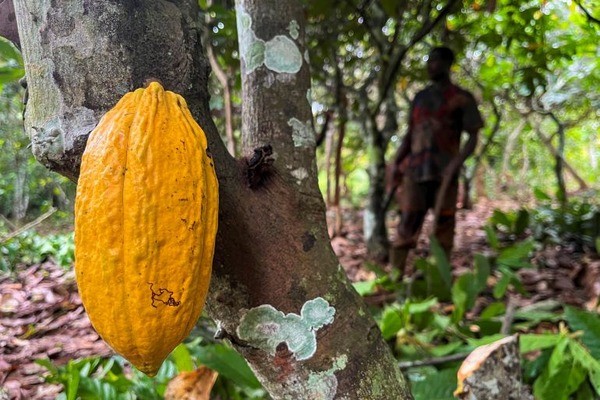In Aboude, A Village in Southern Ivory Coast -
It's 11 a.m. and Magne Akoua is already deep into his work on the cacao farm, where he meticulously inspects each tree, avoiding the scorching sun. Having been a farmer for over four decades, Akoua left an administrative job in Abidjan to manage his family's land in Aboude.
Cacao cultivation, the primary source for chocolate production, is a complex process heavily influenced by environmental conditions. Akoua explains the challenges of pest contamination, the delicate balance required between rainfall and heat, and the adverse effects of climate change on cacao yields.
In recent years, Ivory Coast and Ghana, the world's top cacao producers, have grappled with the impacts of the El Niño weather pattern, resulting in drier conditions and decreased harvests. This has exacerbated challenges for farmers like Akoua, who have seen their yields dwindle significantly.
The financial struggle for cacao farmers is compounded by market disparities, where surging chocolate prices contribute to the profits of international companies while farmers barely scrape by. Christian Kouassi, another farmer in Aboude, highlights the lack of agency farmers have in determining fair prices for their produce.
Despite recent price adjustments by the Ivorian government, farmers like Kouassi remain skeptical about the long-term sustainability of cacao farming as a livelihood. The introduction of price stabilization measures and premiums has provided some relief, but farmers are still hopeful for further improvements.
Souleymane Fofana, an exporter and mill operator, emphasizes the complexities of the cacao industry, where government regulation and international market dynamics play crucial roles. While the global chocolate market thrives, driven by major companies like Mars Wrigley Confectionery and Ferrero Group, local producers struggle to compete.
Fofana advocates for broader market access and partnerships to expand the reach of Ivorian cacao beyond traditional buyers. He questions the dominance of entities like the Federation of Commerce of Cacao, which he believes restricts opportunities for Ivorian businesses.
Amidst these challenges, Akoua reflects on the irony of farming cacao while being unable to afford chocolate, a luxury product sold at prices far exceeding farmers' earnings. He calls for greater accountability from leaders to ensure that local farmers benefit equitably from the profits generated by the cacao industry.
As Akoua and his family continue their daily toil on the cacao farm, they remain hopeful for a future where the fruits of their labor translate into tangible improvements in their livelihoods.








